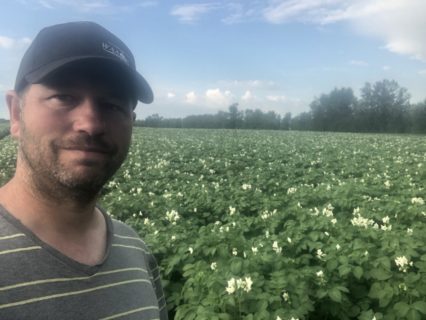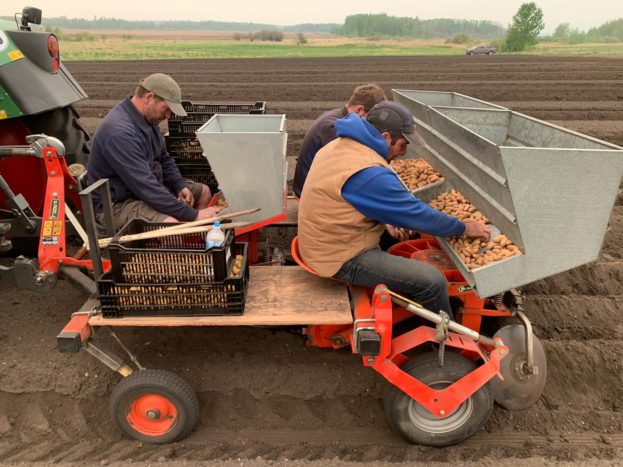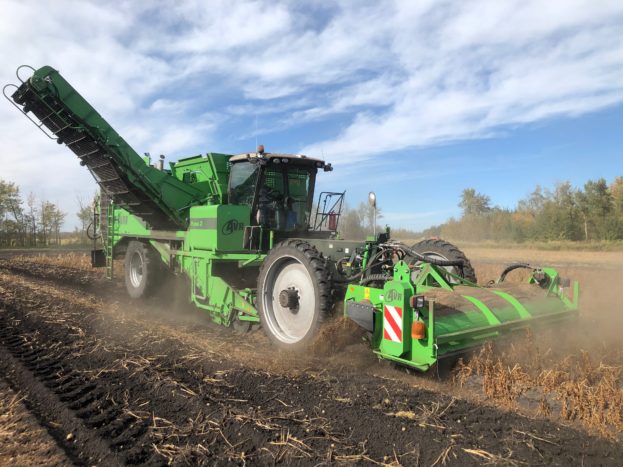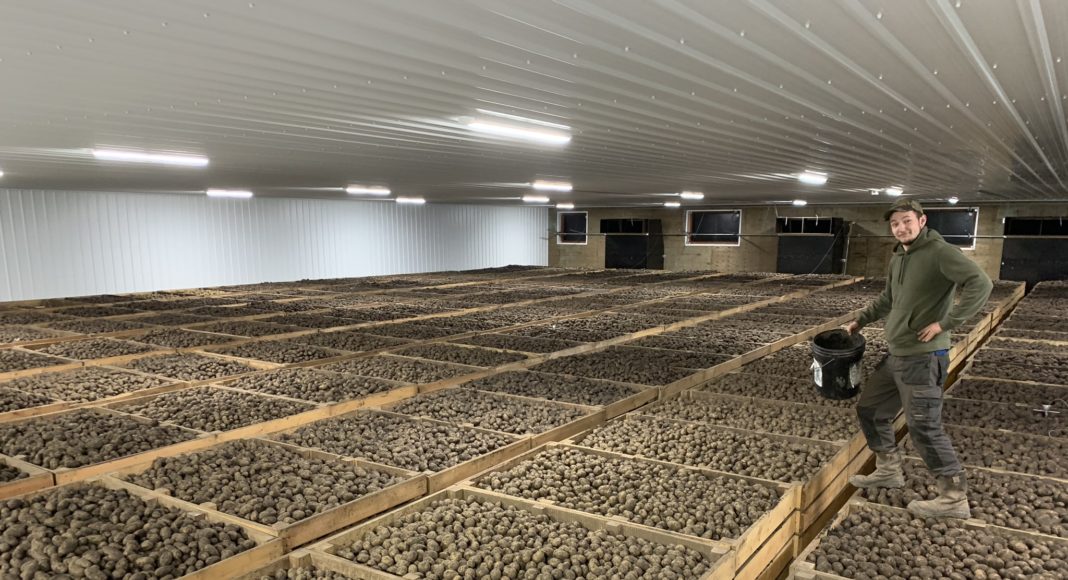Growing potato seed in Canada isn’t an easy job, a lot of work goes into it by the CFIA and seed growers across the country to produce high quality seed.
Experts


Editor’s note: This interview has been edited for length and clarity.
Spud Smart (SS): Why does Canada need a potato seed certification system?
Christopher Dunbar (CD): The biggest part is in food security… in order to maintain and have a productive crop, you need to control diseases. So, in particular, there was one (disease) that was quite bad in the ‘60s, bacterial ring rot. The certification system is in place to try and control those diseases and ring rot fortunately, as an example, is quite rare now. So, it works.
It’s also an important driver of domestic trade and export verification. There needs to be some oversight in maintaining a certain level of disease, a certain level of quality in the seed stocks, minimizing disease.
SS: How does the CFIA try to minimize disease risk in the potato seed propagation system?
CD: The way it works is that there’s essentially zero disease material comes in at the start — it’s grown in the greenhouse and tissue culture. And there’s a certain number of generations that that material is propagated and increased in volume. And at the end, it exits the system.
Potatoes are vegetatively propagated. If plants get diseased, they’re going to stay diseased. So, you’ll have a constant (disease), each year in the field you get more disease. So that’s why we want to minimize or limit the number of years it’s in the system. I would also add that each year, each class, there’s standards and if a seed lot fails in the E1, and does not meet the elite one standards, it’s down classed to the standard that it does meet.

SS: What does the CFIA do for potato seed certification on the farm level?
CD: The first step is the grower applies for crop inspection. They would provide some documentation — there’s actually an application form that they would need to provide — and there needs to be some laboratory testing. So that’s kind of the first step in the season.
During the summer, at least two times, usually July and August, there’ll be two inspections. This is in the field… The seeds regs indicate a minimum of two, so there could be more. In addition to those two field inspections, there’s harvest or storage inspections. The primary purpose of those is verification of lot integrity, where the different lots stored.
We also do some tuber inspections at the shipping point, related to issuance of tags or movement certificates, and to verify the grade. We control the movement. If things aren’t up to grade, then we don’t issue the document, the tag or the movement certificate.
SS: What makes potato seed eligible to be certified?
CD: In order for CFIA to accept your application, you need to provide some documents for each lot that was grown on the farm. It needs to have (bacterial ring rot) testing. Even if there’s no seed brought into the farm or sold from the farm, there still needs to be a minimum of two lots tested for bacterial ring rot (BRR). And all purchased seed must also be tested.
If there’s a new grower, before they even get seed on their farm, a new grower would be required to do a full cleanup under CFIA supervision. Because with BRR, it is endemic to Canada. We will make sure before you bring something into the seed system, the farm is cleaned up.

SS: How do you, as a seed grower, monitor your crops for diseases during the growing season?
Jake Hoogland (JH): We often monitor for aphids. Every week, we have sticky cards that we send in that get checked, what kind of aphids are around. I think for us, for seed growers, that’s one of our biggest challenges keeping the aphids out of it. Lucky in Alberta, our aphids don’t show up usually until late July and August. So, we don’t have to spray too often for it.
Also, rogueing in the summer falls back to what Chris was saying, we get two field inspections by CFIA. We try to go through our crop before the first inspection and have everything rogued, pull out anything that we think is not right. And before the second inspection, we do focus a lot of on our on our high generation seed, so that it’s easier to grow later on when it’s a lower generation and more acres.
SS: How do you test your seed as a seed grower?
JH: We use a post-harvest test, mainly Hawaii if we can. Unfortunately, because of COVID we couldn’t last year, but hope to be back in Hawaii right away. And we do a lot of lab testing too. I prefer both, it becomes a little bit costly. But I think a grow out gives you a really good indication of diseases where you’re not necessarily be testing for in the lab. In the lab, it’s only going to get tested for what you ask it to be tested for. In a visual, you might see something that is a little unusual. And then you can start testing for things and know what’s going on in your seed lots.
Related Articles
WATCH: Potato Seed Certification Process – A Spud Smart Roundtable Webinar & Podcast
Here’s the Latest on what’s Happening with Seed Regulatory Modernization











